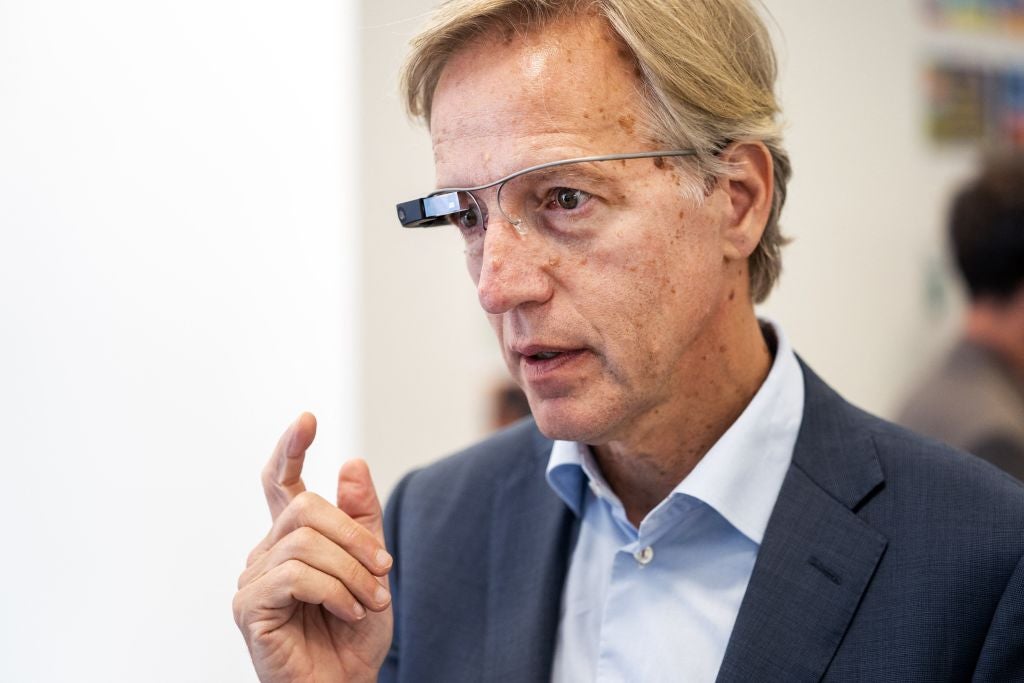
The augmented reality (AR) market faces another major blow following the announcement that Google will be ceasing sales of its Glass Enterprise smart glasses.
All support, including software updates, will wind down by September 2023, according to a Google spokesperson.

Access deeper industry intelligence
Experience unmatched clarity with a single platform that combines unique data, AI, and human expertise.
A successor to the company’s failed Google Glass product, Glass Enterprise was Google’s second attempt at wearable AR technology.
The lightweight glasses transmitted snippets of information onto a screen over the user’s eyes – allowing for on-the-go hands-free data and calls.
First released to developers in 2013, Google Glass has had trouble breaking into the mainstream and capitalising on the initial hype of the hardware.
“The demise of Google Glass Enterprise can be attributed to a lack of appealing use cases and a challenging macroeconomic environment,” Pinky Hiranandani, associate project manager at GlobalData, told Verdict.

US Tariffs are shifting - will you react or anticipate?
Don’t let policy changes catch you off guard. Stay proactive with real-time data and expert analysis.
By GlobalDataThe news comes as other companies gear up to capitalise on the development of AR technology.
While Meta has been heavily focused on selling virtual reality (VR) headsets, CEO Mark Zuckerberg has made it clear that both VR and AR tech will be used in the metaverse.
When Meta previously released Ray-Ban smartglasses with cameras, Zuckerberg spoke openly about wanting a Google Glass-like final product, CNBC reported.
“Whilst VR headsets have gained real traction in the gaming sphere, the same can’t be said for wearable AR tech like Google Glass,” Michelle Stark, sales and marketing director at Fasthosts, told Verdict.
Microsoft has also entered the AR glasses business, releasing HoloLens in 2016, aimed directly at businesses. This doesn’t seem to be thriving either, however, as the team working on the device reportedly suffered major cuts earlier in the year.
“I don’t believe that right now, the public are interested enough in AR to warrant Google continuing to develop the product, at least not right now,” Stark said.
“At this moment in time, AR just doesn’t have that mass market appeal, especially when searching for information you need can be done with just a few taps on our phones,” she added.
Google Glass may have been doomed from the start
Google Glass’s unharmonious end comes after a long road of disappointment for the company’s attempt at AR glasses.
Google Glass launched for the first time in 2013 for a whopping retail price of $1,500, a price tag that felt far too high, even for AR enthusiasts.
Talking to the New York Times during the launch, a former Alphabet employee said: “I think it was the wrong way to put out a product. We were having people pay $1,500 to tell us how to fix this thing.
“I think a lot of people saw the end of Glass coming. People just weren’t ready to wear this thing on their faces. It didn’t normalise the way they [Google] anticipated.”
On top of the hefty price tag, concerns over privacy and misuse plagued the AR glasses’ launch. Sceptical users questioned the harmful practices that could be carried out if the product fell into the wrong hands – filming a stranger without them knowing, for example.
Concerns grew to the point that “don’t be a Glasshole” was a phrase used by Google in advertising material to deter users from misuse of the product.
Despite the failure of Google Glass, the AR market is growing steadily, according to GlobalData.
AR technology saw a total $1.4bn invested in 2022, an increase from $1.2bn for the previous year.
As the value of investment continues to grow, AR tech is only going to get more powerful and widespread - meaning other wearable products may still have a chance to penetrate the market.
GlobalData is the parent company of Verdict and its sister publications.







